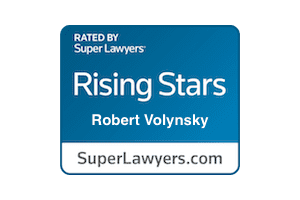



Mutual fund fraud can be one of the most far-reaching types of securities fraud. This is because it affects a wide range of investors and can often pass unnoticed for many years. More often than not, by the time the damage is discovered, innocent investors have been defrauded of large sums that can sometimes amount to billions of dollars.
Sadly, many never even discover the fraud that has been perpetrated against them. And yet, mutual funds have been identified as one of the top 15 security types involved in FINRA arbitration claims. This is why if you have cause to believe that you are a victim of mutual fund fraud, you should contact a qualified securities fraud lawyer immediately.
Our lawyers at Weltz Law can help you understand how the law applies to your case and what options you have for recourse. Call (877) 905-7671 today for a free consultation.
Mutual funds are an investment product that sells shares in the funds to investors in exchange for money. The money is then pooled together and invested in different securities. This would be based on the type of fund and its underlying investment strategy. What makes mutual funds attractive is their size and potential to perform well.
Due to the massive funds they often carry, mutual funds can invest in varying security types across sectors. This spread can significantly reduce volatility and increase returns. The problem though is that mutual funds can also be susceptible to fraud.
Despite the regulation of mutual funds by the Investment Company Act and the SEC, fraud still persists. In fact, as FINRA statistics show, mutual funds are amongst the top 15 securities on which disputes occur. A large number of these disputes are due to fraud, code violations, and other indiscretions by fund companies. Between 2016 and 2017 alone, hundreds of complaints were filed, all related to either self-dealing, excessive fees, or fraudulently inappropriate investment choices.
What is more damaging for investors is the fact that a large number of mutual funds are funded from 401(k)s. Basically, many of these funds have retirement money in them. When fraud is perpetrated on the fund, it can lead to the devastating loss of people’s hard-earned retirement portfolios.
Without a doubt, mutual fund fraud brings real consequences to investors. Complaints typically involve losses running into billions, and when these amounts are spread across investors, it results in losses worth thousands of dollars for each investor.
If you have been subject to mutual fund fraud, then you need to look critically into your options for redress. You should not have to bear the losses that arise due to your fund manager’s fraud, negligence, or selfishness. Please don’t hesitate to get in touch with a lawyer at our firm to get help understanding all of your rights.
Mutual fund fraud can arise in a number of situations. The basic liability for fund companies in these situations is the duty imposed on them to act in the best interests of their investor clients. They are expected to act in good faith and provide advice that takes your needs and preferences into consideration.
Despite these duties, brokers and fund companies often perform a variety of unethical actions. These are done usually to increase their fees or commissions. Some of the unethical actions that can amount to mutual fund fraud include:
Mutual fund investments are intended to be held for long-term periods. But when the fund is sold just to invest in a similar fund, mutual fund switching may have occurred. If the new fund has similar investment objectives or no clear difference in investment strategy, it would mean the sale was for nothing. The only goal would have been to charge the investor a sales commission for activity that had no purpose.
The purpose of breakpoints is to provide discounts on sales commission chargeable to an investor if they invest up to a certain amount. If the size of your investment is close to an amount where you enjoy a breakpoint, then your broker should advise you on it. But when a financial advisor intentionally recommends that you invest in an amount just below a breakpoint, fraud may have occurred. In such instances, they only advise you in that manner so they can avoid having to give you a discount on the sales commission due to them. This behavior would be in breach of FINRA Rule 2342.
In some instances, fund managers may owe trailing commissions to other entities that provide legitimate services to a fund. But fraud occurs when trailing commissions are paid to entities that have not offered the fund any services. An example of this type of fraud is when commission is paid to discount brokers that are prohibited from providing investment advice to investors. If your fund manager has paid trailing commissions to these brokers, then you may be entitled to file a claim for compensation.
Self-dealing is unethical behavior by fund managers and occurs when they make investment decisions in their own interest instead of the investors’. This behavior is prohibited under the Employee Retirement Income Security Act (ERISA).
Inappropriate Investment Choices: Mutual fund shares usually come in different classes. Class A shares impose a front-end charge while Class B shares operate on a contingent basis. This means that you must pay a Class charge out of your principal investment amount. But you only pay for Class B shares out of your profit by the time you sell the fund. Due to this, Class B shares also charge a significantly higher annual expense than Class A shares. If you purchased mutual funds and your broker did not advise you on the different classes, you may be a victim of fraud. Before purchasing Class B shares in a mutual fund, your broker should carefully explain the higher costs associated with them. They should also carefully analyze if those shares are suitable for you.
Although determining when mutual fund fraud has occurred is difficult in itself, proving it is even harder. In excessive fee claims, it must be shown that the fees were so “disproportionately large” that they had no reasonable connection to the services offered. Also, it should be shown that the fees were so unreasonable, they could not have been a product of objective “arm’s length” bargaining.
In other mutual fund fraud claims as well, there must be adequate proof that shows the fund companies acted unethically. This proof will often require in-depth analysis of the facts of your case. In most instances, it will also require evidence from securities analysts and experts. While the required proof and procedure to obtain compensation seems difficult, our experienced securities fraud attorneys are here to guide you each step of the way.
At Weltz Law, we understand that investors often face substantial losses due to investments in mutual funds by a broker or brokerage firm. If you suffered financial harm due to mutual funds, it is vital to confer with our legal professionals regarding whether you can recover compensation.
Fill out the form below or call 877-905-7671 to schedule your free consultation
By Appointment Only
5 N Village Ave 2nd Floor
Rockville Centre, NY 11570
By Appointment Only
9171 Wilshire Blvd #500
Beverly Hills, CA 90210
Attorney Advertising | Prior results do not guarantee a similar outcome. The information on this website is for general information purposes only. Nothing on this site should be taken as legal advice for any individual case or situation. This information is not intended to create, and receipt or viewing does not constitute, an attorney-client relationship. This site is protected by reCAPTCHA and the Google Privacy Policy and Terms of Service apply.